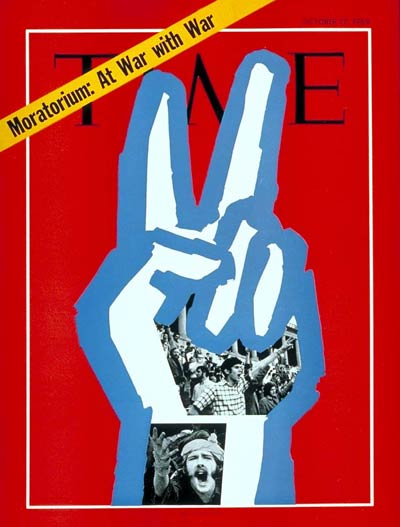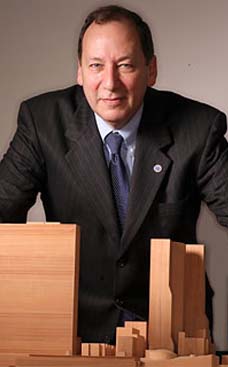
If people are to be punished for the views they held on Vietnam 25 years ago, it would be more logical to punish those who were wrong. We would then bar from any position of public trust persons involved in the Kissinger-Nixon policy that uselessly sacrificed 20,492 Americans and many times that number of Vietnamese, North and South. But I am against such bills of political attainder. In the current Republican mood in Washington, a mood of slash and burn, philosophical niceties have no place. Shutting off a Senate filibuster requires 60 votes. Two attempts to bring Sam Brown's nomination to a vote failed last week, the first winning 54 votes and the second 56. Supporters may try again after the Memorial Day recess. The result will say a lot about the state of American political life.
The attack on Sam Brown was really an attack on President Clinton. Senator Smith made that explicitly clear, saying that "many" of Mr. Clinton's "national security nominees" were "unabashed anti-war activists or radical extremists"
Abroad at Home; Guilt For Vietnam
By ANTHONY LEWIS
Published: May 30, 1994
In the years 1969 through 1972, when Richard Nixon and Henry Kissinger made policy on Vietnam, 20,492 Americans died in the war. At the end of that time the United States got out the same way it could have at the beginning: on terms that led before long to a Communist victory.
President Nixon and Mr. Kissinger understood all along that there was no feasible way to "win" in Vietnam. They knew that after all the U.S. forces were gone, a South Vietnamese Army that would not fight was likely to be overwhelmed before long. But they wanted to delay that denouement for political reasons.
Anyone who doubts that political self-interest dominated Vietnam policy-making in the Nixon White House should look at the newly published diaries of the late H. R. Haldeman, its chief of staff. On Dec. 15, 1970, he wrote this entry:
"K came in and the discussion covered some of the general thinking about Vietnam and the P's big peace plan for next year, which K later told me he does not favor. He thinks that any pullout next year would be a serious mistake because the adverse reaction to it could set in well before the '72 elections. He favors instead a continued winding down and then a pullout right at the fall of '72 so that if any bad results follow they will be too late to affect the election."
It was the fall of 1972 -- during the election campaign -- when Mr. Kissinger announced, "Peace is at hand." After further heavy U.S. bombing of North Vietnam, designed to overcome South Vietnamese resistance to the terms, the agreement was signed in January 1973. By then Mr. Nixon had been re-elected.
All of that may seem ancient history, but it is not. For in the United States Senate last week the argument was made that a man who protested those four added years of the Vietnam War -- a man who thought lives mattered more than politics -- should therefore be barred from public office.
That attack was made on Sam Brown Jr., whom President Clinton nominated last November as Ambassador to the Conference on Security and Cooperation in Europe. Republicans delayed the nomination for months in committee and are now filibustering to keep it from coming to a confirmation vote on the floor.
Sam Brown was a leading activist against the Vietnam War. He was in the centrist part of the movement, opposing extremist tactics. He headed one of the most successful protest efforts, the Vietnam War Moratorium in 1969.
Senator Robert C. Smith, Republican of New Hampshire, denounced Mr. Brown last week as "a radical anti-war protester" who "publicly supported our Communist enemies in Vietnam." He said "the Sam Browns of the world are the people who throughout the cold war opposed what we did to fight Communism."
The attack on Mr. Brown was really an attack on President Clinton. Senator Smith made that explicitly clear, saying that "many" of Mr. Clinton's "national security nominees" were "unabashed anti-war activists or radical extremists."
"The President continues to surround himself," Senator Smith said, "with the type of people he protested with in the golden years of the anti-war movement. And it is having a devastating effect on the quality and the effectiveness of our national security policy."
Senator John Kerry, Democrat of Massachusetts, a decorated veteran of the Vietnam War, said Senator Smith and some of his colleagues were attacking the right to dissent, "a reverse form of political correctness." And Sam Brown's dissent, Senator Kerry said, turned out to be right. Even Richard Nixon and Henry Kissinger eventually "adopted his judgment, which was that we had to get out."
If people are to be punished for the views they held on Vietnam 25 years ago, it would be more logical to punish those who were wrong. We would then bar from any position of public trust persons involved in the Kissinger-Nixon policy that uselessly sacrificed 20,492 Americans and many times that number of Vietnamese, North and South. But I am against such bills of political attainder.
In the current Republican mood in Washington, a mood of slash and burn, philosophical niceties have no place. Shutting off a Senate filibuster requires 60 votes. Two attempts to bring Sam Brown's nomination to a vote failed last week, the first winning 54 votes and the second 56. Supporters may try again after the Memorial Day recess. The result will say a lot about the state of American political life.













